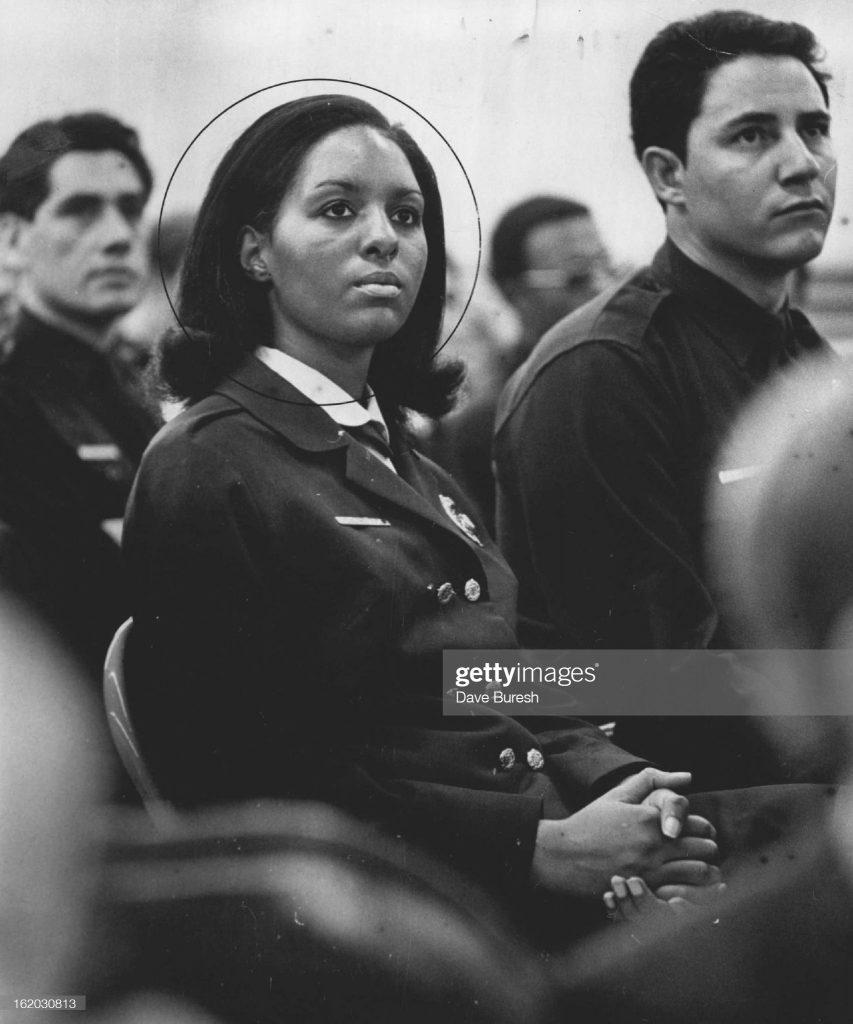The Hogue Decree
In 1972, Carole C. Hogue was a primary plaintiff, joined by two other courageous women who filed a lawsuit against the City and County of Denver, Denver Civil Service Commission, and Denver Police Department for discriminatory hiring practices.
In 1972, the first Black female officer joined the Denver Police Department. Her name is Carole C. Hogue and she was accepted into the Denver Police Academy after she and the American Civil Liberties Union filed a lawsuit charging the department with racial and sexual discrimination. Their claim resulted in the consent decree, called “The Hogue Decree.” The decree required the Denver Civil Service Commission and the police department to hire one police woman for every four male officers, and that 20% of officers had to be minorities.
Hogue was assigned to the Denver Police District 2 patrol unit, and was no stranger to the action. One of the most notable calls Hogue would go on, was the “Crusade for Justice” shootout on March 18, 1973. One person was killed, and nine were injured. Of those nine, six were police officers, and one of them happened to be Hogue’s partner, Officer Snyder. Hogue and Snyder were amongst the first officers on scene.
Hogue served for 15 years, and retired in 1987.

Denver Police Museum Announces 2021 Black History Month Honorees
On February 25, 2021, the Denver Police Museum, in partnership with the Blair-Caldwell African American Research Library and the Denver Police Department, hosted an event to honor Carol Hogue, Rae McCall-Hunn, and Laura Tinnin-Whitney—three inspiring women who, through their willingness to pursue justice, ensured that everyone could have the opportunity to serve the Citizens of Denver as law enforcement officers.
The Denver Police Department has historically had Black police officers serving since the 1870s. The first full-time Black officer was hired in 1881 after being elected to office by the citizens and City Council, followed shortly thereafter by a second Black officer on the relatively small department of the period. More Black officers served throughout the decades and well into the 1930s.
Those first officers were male, as were the traditional ranks of policing up until the mid-20th century, when more women began to serve on the Denver Police Department. In the late 1960s, women across the nation were joining the ranks of patrol officers across the country but the recruitment and hiring of minority officers in Denver lagged behind the national average.
In 1972, Carole C. Hogue was a primary plaintiff, joined by two other courageous women who filed a lawsuit against the City and County of Denver, Denver Civil Service Commission, and Denver Police Department for discriminatory hiring practices. The city agreed to implement changes and that settlement is still known today as the Hogue Decree. The City of Denver agreed there would be an effort to hire a ratio of one female for every four male officers, and for the makeup of the department to reflect 20 percent minority officers in future hiring. The first three Black female officers hired were Carole C. Hogue, June 6, 1972; Rae Beth McCall, July 02, 1973; and Laura M. Tinnin, February 1, 1974. This decision mandated a study be completed to evaluate women’s roles and performance in the Denver Police Department. That study was completed in 1977, showing women were just as effective overall as men in the service of the department.
These three pioneering Black women were involved in the City of Denver’s 1988 agreement to include 45 percent Black officers in the first academy class of 1989 and to make a good faith effort in recruiting subsequent academy classes to reflect the demographics of the city.
The Hogue Decree is still in effect today, and while there is still work to be done, female officers are 14.5 percent of the Denver Police Department and the department continues to focus on encouraging women in leadership roles.
Their efforts resulted in greater opportunity for both women and people of color, and ensured that the Denver Police Department closely reflected the community it served.
